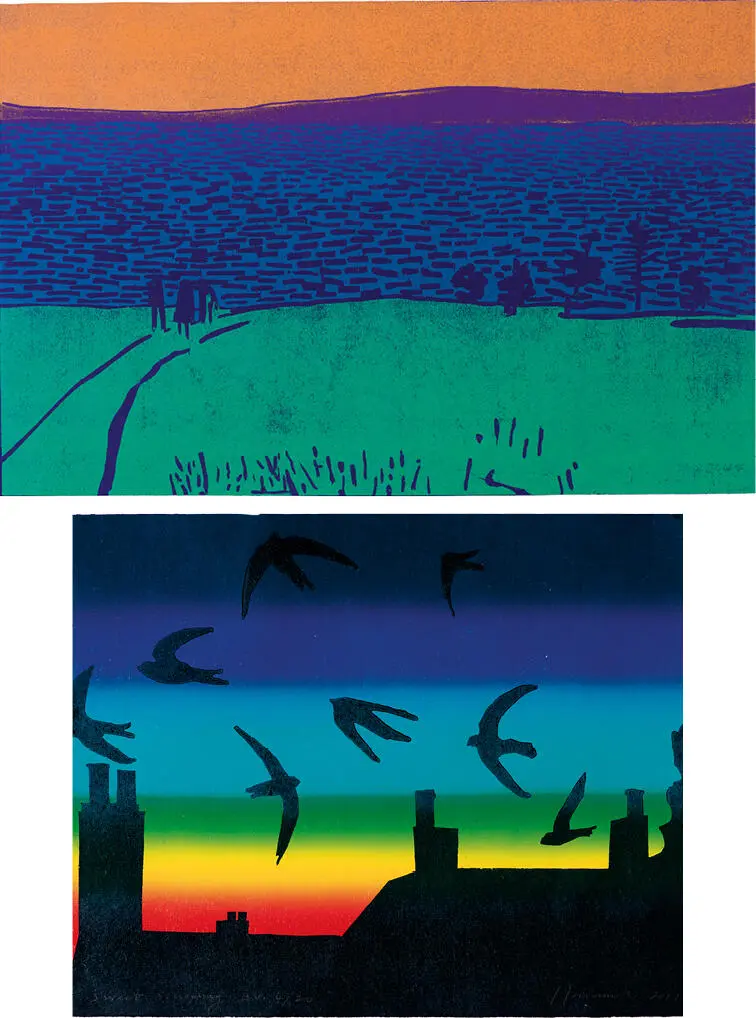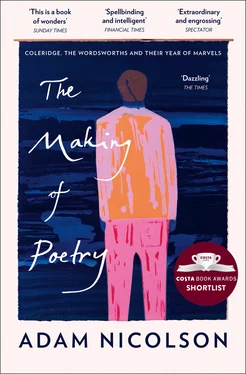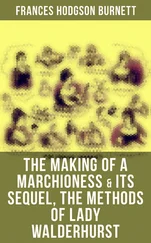In Wordsworth’s poem, the poet comes across a ruin and meets an old man, a pedlar, who had known the place many years before, when happiness had glowed from its windows. ‘I see around me here,’ the Pedlar says,
Things which you cannot see. We die, my Friend,
Nor we alone, but that which each man loved
And prized in his peculiar nook of earth
Dies with him, or is changed, and very soon
Even of the good is no memorial left.
In the garden is a neglected spring, and the poet goes to drink there:
A spider’s web hung to the water’s edge
And on the wet and slimy foot-stone lay
The useless fragment of a wooden bowl.
It moved my very heart.
A young woman, Margaret, had lived in the remote cottage, and always welcomed passers-by. Her husband Robert had worked in the garden, often late,
till the day-light
Was gone, and every leaf and flower were lost
In the dark hedges.
One or two other poets – Southey, Cowper – had managed to write of simplicity and suffering in this low, gentle, absorbent, un-self-proclaiming way, in which the reality underlying the poetry matters more than the surface of the poetry itself, but ‘The Ruined Cottage’ is something new in Wordsworth’s life. Its facts, like those leaves and flowers sinking back into the darkness of the evening hedge, have become the modest elements of an unquiet landscape. The whole poem exists in a border state, ‘without the application of gross and violent stimulus’, as he would describe the qualities of valuable poetry the following year, but attentive to the sorrows of the story it tells.
It is tempting to think, given the permeability of the boundary in Wordsworth’s mind between the remembered and the imagined, between some other reality and his own experience, that there is autobiography underlying this tale of distress. Margaret is one of the many women in Wordsworth’s poetry who are left with their children to fend for themselves, and suffer as a result. He said himself that in ‘several passages describing the employment & demeanour of Margaret during her affliction, I was indebted to observations made in Dorsetshire’, but there was a more powerful stimulus than the poor he met on the paths and roads of Dorset: the knowledge and memory of the woman and child he had abandoned in France.
This sort of figure had haunted Wordsworth’s imagination before he had met – or left – Annette Vallon, and they appear, usually in much more exaggerated form, in the poetry of many of his contemporaries. But here, in the simple, first version of ‘The Ruined Cottage’, there is a kind of conceptual democracy at work, by which Margaret’s modest truth is allowed to be as valid as any other. There is no need to exaggerate, because exaggeration is a form of obscurity. And so the poem looks carefully at the quiet facts around her. The bad years had come – war and summers when ‘the fields were left with half a harvest’, a sickness everywhere and no work:
shoals of artizans
Were from their daily labour turned away
To hang for bread on parish charity,
They and their wives and children, happier far
Could they have lived as do the little birds
That peck along the hedges or the kite
That makes her dwelling in the mountain rocks.
Robert was driven to the army as the only source of employment, and before he went, left for Margaret and their children a bag holding ten guineas, eight months’ pay for a labourer, given as a bounty to all who volunteered. She waited five years for him to return, a kind of vacuity in her:
in that broken arbour she would sit
The idle length of half a sabbath day;
There, where you see the toadstool’s lazy head;
And when a dog passed by she still would quit
The shade and look abroad.
Dorothy copied out for Coleridge the lines describing Margaret’s paused and eviscerated life, in which, sitting in the ruin of her cottage,
Her tattered clothes were ruffled by the wind
Even at the side of her own fire
and he sent them in amazement in a letter to a Bristol friend, evidence that Wordsworth had broken through to a new level of poetic speech, in which the story was embodied in language that claimed no status greater than what it described. Wordsworth’s language had itself become the medium for empathy and democracy, and for that Coleridge recognised greatness in him.
4
July 1797
Coleridge brought the Wordsworths over to Stowey from Racedown at the very beginning of July, at first for what they all thought was to be a short visit. He borrowed a one-horse chaise and drove them – ‘always … very cautious’ – all day along the execrable Dorset and Somerset roads.
Even at first sight, arriving on a July evening, Nether Stowey is a place for entrancement. From the castle motte above the village, England is there in all its beauty. The low nose of the Quantocks pushes out dark blue and gold in the shadows towards the sea at Kilve. The sun is setting, at nine o’clock, well to the north of west over the Bristol Channel. The sheep grazing around the Norman mound are haloed by that last light. It falls on the power station at Hinckley, on the two purple, shadowed islands in the channel, Steep Holm and Flat Holm, with the line of Wales behind them, beyond the sky-blue band of sea.
Is this what people have always seen? Or am I seeing it because Coleridge has taught me to see it? It feels golden, honeyed, a sweetness poured over the country and into it, into the fescues and little vetches and vetchlings at my feet, all of which are glowing now as if they were part of the mended world.
Down the streets of the little town below the castle, the swifts are sweet-screaming, whistles blown through atom-wide mouths, with the martins above them, and midges alight in the sun-shafts between the buildings. Beyond the tile and slate of the roofs and the church tower are the blocks of woodland, the golden windows of the cornfields, the hedgerow oaks now nearly black, gone monumental in the dusk, the dabbed dark ink marks of summer trees.

Honeyed world
Stowey swifts sweet-screaming
Everything is still, but a dog barks and the young rooks chatter and caw between them. The swifts are making sudden power turns in among the buildings, weaving their paths down South Lane, back over the houses in Castle Street, over the road to Spaxton and then into the narrow canyon between the cottages in Lime Street before climbing up over the roofs, again and again. A stream from the hills runs down the streets in a wide stone gutter, almost soundless now in its reduced summer flow. Even on a beautiful sunlit evening, the little town closes by the time the sun sets. There are drinkers in the pubs, and the sound of televisions comes through open windows. If anywhere can seem well, this place does.
In reality, Nether Stowey in the 1790s was no dream world. It was still connected to its medieval past. Every winter, pairs of heavy oxen ploughed the red Quantocks soil. Old Somerset men talked in a way William Holland, the Oxford-educated vicar of Over Stowey, couldn’t understand, shouting at their animals ‘Jubb along, jubb along’ – meaning, Holland guessed, that the vast oxen should somehow be skipping and jumping down their furrows. Every Tuesday, farm women brought their eggs and butter for sale to the market cross in the centre of Stowey. The poor climbed the hills to the commons, called the Stowey Customs, to cut the gorse or ‘furze’ for their bread ovens, bracken for animal bedding, picking up fallen wood for their own fires. The fields of the parish still bore their ancient names: Cockley Land, Strawberry Hill, Fuzz Ground, Great Warren, Castle Ground.
Читать дальше













